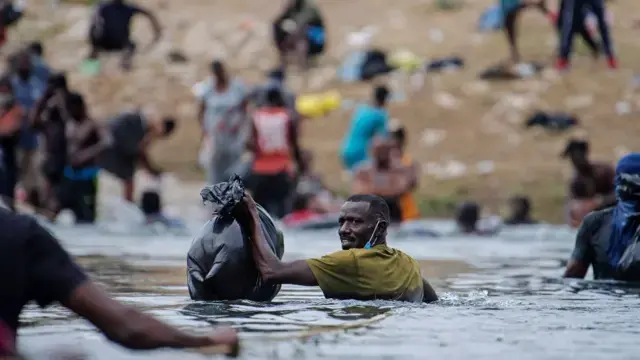Public Protests Persist in Panama: A Country Without a Colonial Enclave Mentality
- Chevy Solis Acevedo

- Nov 2, 2023
- 3 min read
FOR IMMEDIATE RELEASE
CITY OF PANAMA, PANAMA - November 1st, 2023.
The Panamanian government approved a contract with Minera Panama, a subsidiary of the multinational company First Quantum Minerals, with the same constitutional flaws as the contract approved in 1997. This fact has sparked anger throughout society and mobilized public outrage across Panama. Several sectors, especially those from black communities near the mining region in the province of Colon, have joined this struggle. The Panamanian population is protesting in the streets due to their disagreement with mining extractivism and the undemocratic and repressive manner in which this contract with Minera Panama was approved. This open-pit mine is the largest in Central America and one of the largest in Latin America, located in the District of Donoso in the province of Colon, which has the highest black population in the country.
Public indignation centers around the recent accelerated approval of the contract with Minera Panama, a decision made against the will of the Panamanian people. This approval allows Minera Panama to continue extracting copper, gold, molybdenum, and other minerals for more than 20 years, extendable, in the midst of the Mesoamerican Biological Corridor.
Protesters argue that mining operations have caused significant environmental degradation, displacement of local communities, and a decrease in the quality of life for residents. These social impacts are intrinsically linked to the history of mining in the country, which has disproportionately affected black communities through displacement and marginalization, thus deepening the inequalities experienced in the sixth most unequal country in the world.
In Panama, there are fifteen approved contracts for open-pit metallic mining exploitation, exploration, and beneficiation. Of these fifteen contracts, the copper mine Minera Panama, owned by First Quantum Minerals, is the one currently exploiting mineral resources and generating benefits to this date. By 2022, they reported two billion two hundred fifty-nine million dollars, of which they paid 2% in royalties, that is, fifty-seven million dollars. However, this large-scale operation has now become a focal point of public agitation.
Civil society organizations argue that such decisions have been made without sufficient public consultation, violating the Escazú Agreement, which is the Law of the Republic and precisely favors citizen participation. The population has mobilized due to their awareness of the social and environmental impacts of mining, especially in the black communities of the rich biodiversity of the Colon region. The mining experience in the country involves displacement and marginalization, greater impoverishment of communities, abuses towards women due to the presence of outsiders in the communities, and changes in agricultural production due to the mining-imposed border.
Today in the streets, the following are demanded:
Guarantee the right to protest safely and that law enforcement agencies stop abuse and the use of force against protesters.
That Deputies of the country put on the Panama jersey, abandon the servility they carry within, and have a minimum amount of love for the land that saw them born. May they not jeopardize the future of this country.
Demand that the Supreme Court of Justice assume its role and promptly restore social peace to the country by declaring the Law 406 contract unconstitutional, which was irresponsibly approved by the Assembly of Deputies and signed by the President of the Republic in less than 72 hours.
Call for an indefinite retroactive mining moratorium law that stops all pending applications, extensions, or any permits for mining exploitation in Panama.
Respect the international agreements and treaties that the country has signed regarding the environment and the protection of environmental defenders in our country.
Demand that the three branches of the State respect the will of the people, who have made it clear that Panama is worth more without mining and that it is not a people with a colonial enclave mentality.
For more information, please contact:
Chevy Solis, Director of the Institute of Human Rights, chevy@afroresistance.org
Marcia Olivo, Program Director, marcia@afroresistance.org


Unlock hot nights with the Rajouri Garden escorts service for attractive and hot guys. Rajouri Garden call girls at the Rajouri Garden Escorts enchantingly deliver erotic adventures that singe the spirit. Escorts in Rajouri Garden hunt those features you longed for with lots of guarantees and within a safe environment. Seize the opportunity for an electrifying experience by ensuring your booking!
Crafting a dissertation is an arduous journey, and our Dissertation Writing Services are designed to be your trusted companion throughout. We understand that each academic pursuit is unique, and thus, our approach is tailored to meet the specific demands of your research. From literature reviews to methodology, our seasoned writers delve deep into the nuances, ensuring a bespoke solution that aligns with your academic goals.